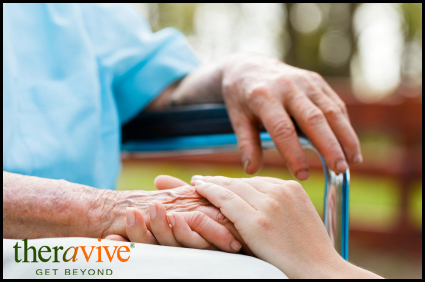December 13, 2014
by Marti Wormuth, MA

One of the most detrimental disorders of today's world is Alzheimer's Disease. Many people have heard of it, but they don't know what to do when it rears its ugly head. It can be really frustrating for the person with the disease, and it can be really upsetting to watch the person you love deal with it. But what is Alzheimer's Disease? Why does it affect some people and it doesn't affect other people? What does it do to the mind? How can we help our loved ones and our families to get through what is going on with our loved one's diagnosis? We're going to answer those questions here today.
[More]
There appears to be a connection between dementia, Alzheimer’s Disease, and Vitamin B-12, but not one that suggests a cure for dementia of the Alzheimer’s or another type. If B12 reduces memory loss and deterioration of brain volume, it is a step in the right direction for the eventual effective treatment of the terrible condition known as dementia.
[More]
Vascular dementia is one of eleven general types of dementia. It is second only to Alzheimer’s Disease as a cause of this condition that affects the elderly in America. Scientists at the Krembil Neuroscience Centre (University Health Network, 2014) may have found one major cause of this type of dementia. And that could lead to effective treatment approaches for the condition.
[More]
For the entire time Alzheimer’s Disease has been around since first described, there has been no effective treatment. No medication to attack the multiple elements of the disease, no non-medical treatments to do more than blunt the effects of peripheral symptoms. But maybe that’s about to change.
[More]
May 26, 2014
by Christie Hunter

Every 67 seconds a person living in the United States develops Alzheimer’s Disease, says the Alzheimer’s Association. They also report that there are currently 5.2 million people in America living with Alzheimer’s Diseases (AD) and, by year’s end, five hundred thousand will die because of it.[i]
These facts are sobering alone. When wrapped in the guise of media speculation, broadcasted repeatedly in news headlines and special reports, these statistics are downright scary.
[More]
May 5, 2014
by Christie Hunter

Everyone wants to live in a world with limitless vacation days. In reality, only one segment of the population achieves such a lifestyle: retirees. Once the threshold of retirement is crossed, 40 years of full-time employment seems worth the hard work. However, the romanticism that surrounds this milestone is tempered by physical aches, pains and other conditions that come with age.
[More]
April 10, 2014
by LuAnn Pierce, LCSW

Talking with your older loved one about his/her use of alcohol and/or drugs may be difficult for some. Many people become defensive when asked about their alcohol or drug use, and often do not tell the truth. This is especially true for someone who has been approached by people about drinking in the past. Here are some guidelines to help you address these issues in a way that is more likely to be heard as concern for their well being, rather than a desire to control them.
[More]
March 13, 2014
by Christie Hunter

When the person you thought could move mountains when you were a child needs your help to take care of even the basic of needs, the emotional toll can be overwhelming.
[More]
February 20, 2014
by Christie Hunter

There are many great activities you can engage in every day to trigger the loop between brain matter and brain behavior. Even until old age, the brain is willing to learn new things if you are.
[More]
February 18, 2014
by Casey Truffo, LMFT

Many people counting down to retirement think of having no alarm clock and no "written-in-stone" schedule, but they fail to consider one thing. Their spouse. Their spouse who retired earlier.
[More]